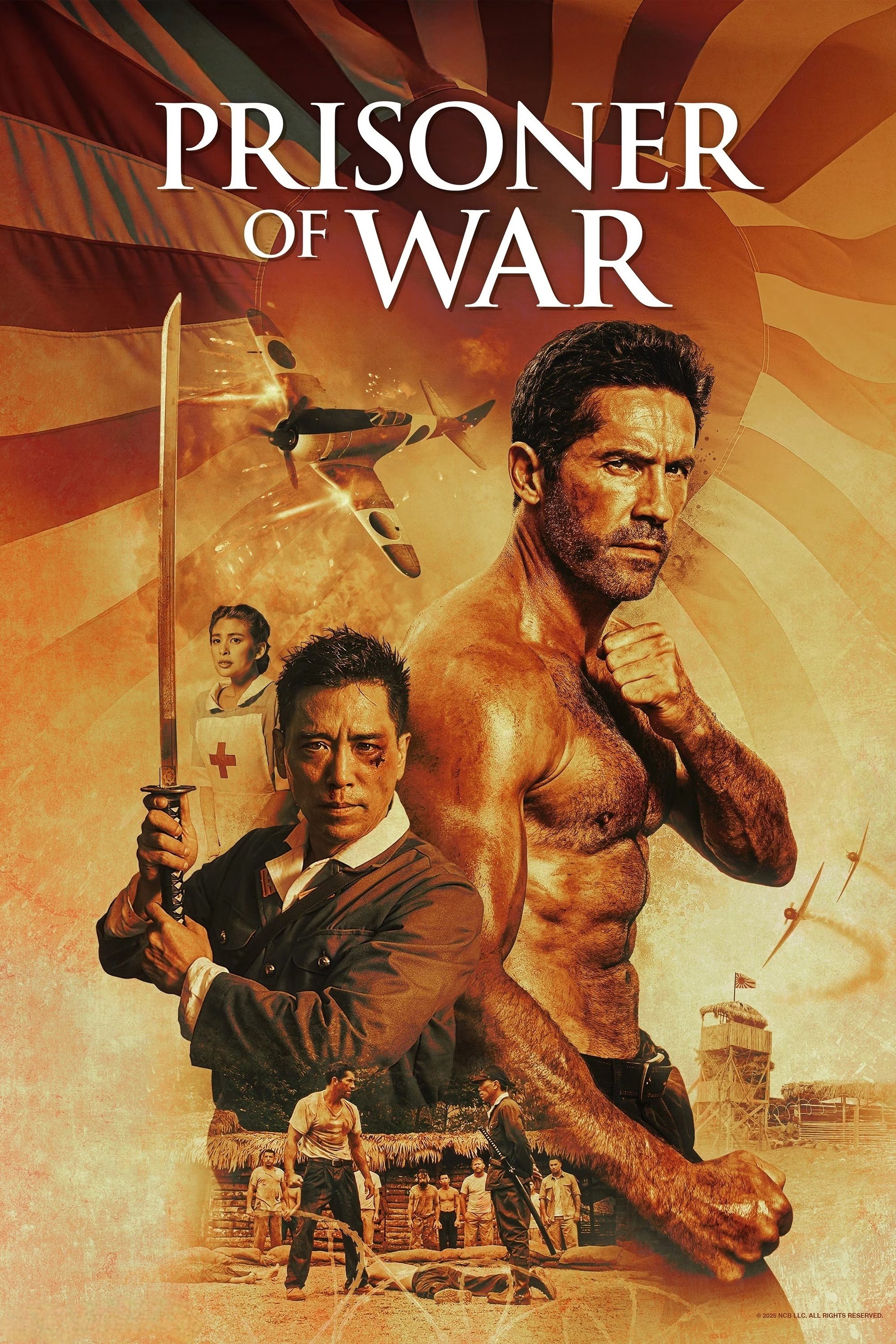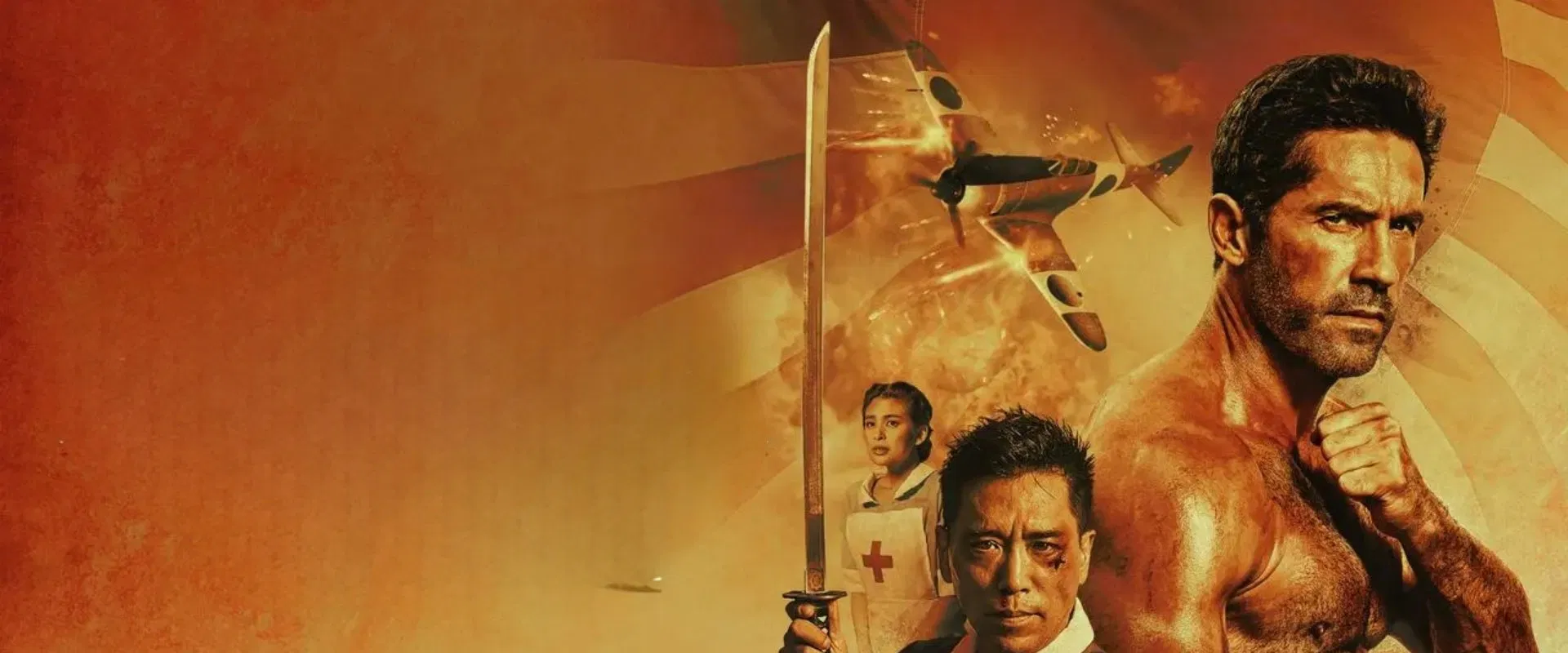Scott Adkins, God bless him, is the sort of one-man genre rescue mission only the British could produce—a demolition expert for busted action franchises and the patron saint of straight-to-streaming also-rans. In Prisoner of War, he’s parachuted (or rather crash-landed, with his jaw set to “unbreakable”) into the kind of pseudo-epic, sun-bleached World War II slog that once would have starred John Wayne—in a century when the “Great Escape” meant climbing out of Malibu traffic, not a bamboo stockade.
Let’s not kid ourselves: Prisoner of War is a shoddy, threadbare little picture, and I say that as someone with a battered affection for Z-grade run-and-punchers. Adkins, playing Wing Commander James Wright with the deadpan focus of a man auditioning to single-handedly liberate every last POW in the history of cinema, somersaults and strikes through the opening movements as if the rescue of the action genre were his personal, lifelong burden. (It might well be.) For twenty minutes the movie pulses with the sort of adolescent adrenaline one fears has leaked forever out of our movies: bodies sail, boots land where faces used to be, and Adkins himself—physical comedian and high-kicking existentialist—seems to flirt with stardom on every frame. You think, briefly, that Hollywood’s carelessness might finally cough up a real action showcase, that you’ll glimpse the sort of muscular, charming apotheosis the man deserves.
But then, inevitably (why must it always be “then” with these films?), gravity crashes in. The supporting cast, each one more sweatless and slack-jawed than the last, shuffles into view, and suddenly we’re banished from the Adkins Cinematic Universe and smuggled into some reality TV cousin—one with the emotional heft of a recruiting video and the production values of a midwestern community college’s “War Remembrance Night.” Peter Shinkoda, a mildly recognizable face, leans hard into the role of captor, grimacing dutifully until the film gives up asking for menace and settles for glowering. The rest? A parade of the barely upright—prisoners so well-kept you think they’re on retreat, not rations; dialogue delivered as if sounded out for a primary school spelling bee. In this camp, nobody knows the word “dirt,” let alone “starvation.”
As genre construction, Prisoner of War moves in the ruts and potholes left by a thousand, better movies. It drafts a token “decent” Japanese soldier (nowhere to be found when the plot needs him and a blank for the rest); it delivers “plot twists” that reek of index cards pinned up in a hurry; it mistakes period detail (modern umbrellas, fresh from the Tesco in Manila) for character. As is usually the way, a script of this kind is less an argument than an apology—a slow-motion crawl from one adrenaline spasm to the next, with the connective tissue provided by moral uplift that feels, at best, perfunctory.
And yet, by the warped logic of the Adkins devotee, I grinned. I grinned at the slapstick earnestness that sees our hero dispatching weight-room brutes who look genetically engineered for Gold’s Gym, 1987; grinned as I caught sight of anachronisms so bold they feel like hidden gags (“Keep sharp, gents, the drone strike’s on its way!”); grinned, finally, because in the rare moments when the camera rests on Adkins doing his thing—fighting, moving, breathing action—one feels again the pulse of the undiluted B-movie. He gives everything, because that’s what’s left to give—a star in a vacuum, shining his light into the dark.
That Adkins is still sweating it out in bargain basement productions is a crime with no perpetrator, only a collective shrug: Hollywood’s refusal, viral and self-replicating, to think that action is an art or its practitioners real artists. Had this been the 1980s, he’d be on lunchboxes; if the 1990s, at least a meme. Instead, consigned to the shrinking island of genre faithful, he must labor through C-minus scripts and the kind of supporting actors who seem to be searching for WiFi, not a way out.
So—putting aside the misplaced umbrellas and the dialogue that lands like a dropped dumbbell—what are we left with? A mediocre film, a minor blip, but one where Adkins kicks above his weight, if only just. There is something perversely heartening about a movie this hapless, stubbornly refusing to do anything more than what it promises—a few minutes of the real stuff, encased like amber in a crust of inert filler.
Prisoner of War is, finally, a serviceable (if limp) delivery mechanism for a star our culture doesn’t deserve. For those who thrill to the flicker of hope amid ruins, who believe a real action hero can still rattle the cage, there is enough here to justify the slog. As long as Adkins keeps turning up—defiant, undiminished by mediocrity—I’ll keep gritting my teeth, gnashing through the misfires and the messes, in hope that, someday, the vehicle will fit the man.









